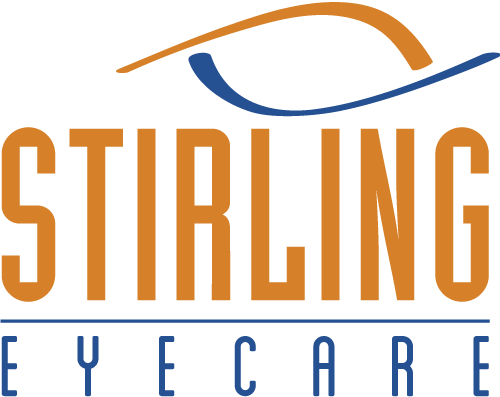
Summer brings increased outdoor activity, which raises the risk of eye injuries. Stirling Eye Care wants you to enjoy every sunny day safely. Here's how to handle common eye emergencies that could happen during your summer fun.
Common Summer Eye Injuries
Eye injuries can occur during summer activities, from swimming and diving to sports and gardening. Common injuries include:
- Foreign Objects: Sand, dirt, or other particles can get into the eyes during beach outings or while playing sports.
- UV Exposure: Excessive exposure to UV rays without proper eye protection can lead to photokeratitis. This condition is similar to a sunburn of the eye.
- Chemical Exposure: Pool chemicals or sunscreen can accidentally splash into the eyes, causing irritation or burns.
- Physical Trauma: Impact from sports equipment like balls or accidental pokes from fingers or objects.
First Aid for Foreign Objects in the Eye
If sand or another small particle gets into the eye:
- Do Not Rub the Eye: Rubbing can scratch the cornea and worsen the situation.
- Blink Several Times: Blinking can help to remove small particles naturally through tears.
- Flush with Clean Water: Rinse the eye with a gentle stream of clean, lukewarm water. You can do this outdoors over a sink or with a clean water bottle.
- Seek Medical Attention: If discomfort persists after flushing, visit Stirling Eye Care or the nearest emergency room for professional help.
What to Do if Chemicals Enter the Eye
When chemicals such as pool water treatments or sunscreen accidentally splash into the eyes, it's crucial to act quickly to minimize irritation and potential damage:
- Immediate and Thorough Rinsing: The first and most critical step is to flush the eye with clean, lukewarm water. Use an eyewash station if available, or position your head under a faucet or shower. Keep the affected eye open as much as possible to allow the water to cleanse it fully. Continue rinsing for 15-20 minutes to ensure you dilute and wash away all chemical traces.
- Continuous Blinking During Rinsing: Encourage blinking while rinsing to facilitate the removal of the chemical. Blinking can help to expel the chemical out of the eye more effectively.
- Remove Contact Lenses: If you are wearing contact lenses, remove them immediately after you have rinsed the eye. This prevents additional irritation and ensures you wash away chemicals trapped under the lenses.
- Do Not Neutralize with Other Substances: Avoid using milk or ointments to neutralize the chemicals. You should only use clean water or a sterile saline solution should for rinsing. Other substances can cause further irritation or complications.
- Seek Professional Medical Help: Even if the eye feels better after rinsing, seeking professional medical attention is imperative. Some chemical exposures can cause delayed symptoms. A healthcare professional can assess the extent of the exposure, check for corneal damage, and prescribe appropriate treatment. Treatment may include eye drops or ointments to prevent infection and facilitate healing.
- Follow-Up Care: Follow all instructions provided by your healthcare provider. This may include using prescribed medications and returning for follow-up visits to ensure the eye is healing properly. Monitor the eye for changes or worsening symptoms and report these to your doctor immediately.
Immediate Care for Eye Injuries
For blows or impacts to the eye:
- Apply a Cold Compress: Use a cold compress on the affected eye to reduce swelling and bruising. Avoid putting pressure directly on the eye.
- Take Pain Relievers if Necessary: Over-the-counter pain relievers can help manage discomfort. Avoid aspirin as it may increase bleeding.
- Monitor for Serious Symptoms: Watch for vision changes, persistent pain, or visible abnormalities in the eye. If any of these occur, seek immediate medical attention.
Visit Stirling Eye Care for Emergency Eye Care
Chemical splashes can be alarming, but quick and appropriate actions can greatly reduce the risk of serious harm. If you experience chemical exposure to your eyes after initial first aid, promptly visit Stirling Eye Care or the nearest emergency room.
Our team can handle eye emergencies and provide the necessary interventions to preserve your eye health.
